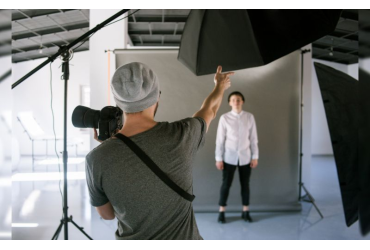Triple-threat theatre talent, Thom Allison, has recently been on our screens as part of Canada’s Drag Race.
I caught up with Thom to talk about the experience.
How did it feel to be invited to be part of this season of Canada’s Drag Race?
I was surprised and then thrilled.
I’ve so enjoyed the shocking creativity we get to witness in the Drag Race franchise, and so impressed by what the queens are able to pull off with the time constraints and demands.
A live singing challenge seems incredibly daunting – from a coaching perspective, how do you approach the task?
The thing I’m always aware of – whether someone is a singer or not but especially when they are not a singer – is the absolute terror people feel about singing publicly.
Almost everyone is a confident shower singer, but when they suddenly have to sing for real, they poop their pants a little bit.
So, I always try to be gentle and fun and funny from the beginning – to create an atmosphere of play and safety.
Then, I make it clear that it’s not about the voice, it’s about telling a story. If you can plug them into what the song is trying to say, it takes the focus off the sound. Ironically, when you stop thinking about the sound, the voice naturally opens up – because human beings are genetically wired to communicate if we have something we need to say.
Drag queens tend to be multi-talented people, but is it fair that we expect a drag queen to be able to carry a tune?
Traditionally, drag queens aren’t expected to sing. There have always been those who can sing live, but with the Drag Race franchise, the bar has been raised so high that any and every skill set can elevate your status in the pecking order of gigs.
If you can sing, it just means your price and commercial appeal go up. The more you have to offer, the more you can charge – or the more options you have to make money.
It’s not that any drag queen must be able to sing, it’s just that the more tools you have in your tool kit, the more opportunities you have for employment.
When did you discover and start to explore your passion for singing?
I come from a family who weren’t singers but sang around the house and in church.
Then, I came to Toronto to go to Ryerson Theatre School. I planned to be a classical actor but the singing teacher at Ryerson was amazing and taught me how to understand singing through the exploration of the text.
I didn’t have a preconceived notion of how one should sing so my voice was open and available and I discovered I loved telling stories in song and had the facility of a very agile voice.
That began a career of what I call musical storytelling. That is the basis of what I call what I do. I love telling stories in song – weaving a spell over an audience in musicals or concerts or cabarets.
Who are some of your musical theatre heroes or inspirations?
Honestly, the first person who comes to mind is Audra McDonald. I knew of her work for many years – and had seen her in Ragtime – but when I saw her in Porgy and Bess, I was in awe. The work she had done on that character was so detailed, without being showy. You knew, at any given moment, her relationship with the drugs being passed around on stage. You felt her desperation, her loneliness, her fear, her doubt, her heart – every moment.
I also have to mention my sweet pal, Norm Lewis, who played Porgy in that production. At the start of both ‘love’ duets – Bess, You Is My Woman Now and I Loves You, Porgy – they got out the first line of the song and each time, the entire audience – and I’m not exaggerating – burst into tears. Not long after that, their detailed work inspired how I prepared to play Coalhouse Walker Jr. in the critically acclaimed production of Ragtime at the Shaw Festival.
If someone isn’t confident about singing in public, what are some tips or tricks that they could try to overcome the nerves?
Think about the ‘story’ of the song that you want to share with the audience. Think about why you love the song you are singing. Think about how brave you are to be up there when most, if not almost all, of the people sitting there are too afraid to do it. Or, if they are singers, they know how brave you are to be doing this and they are on your side.





